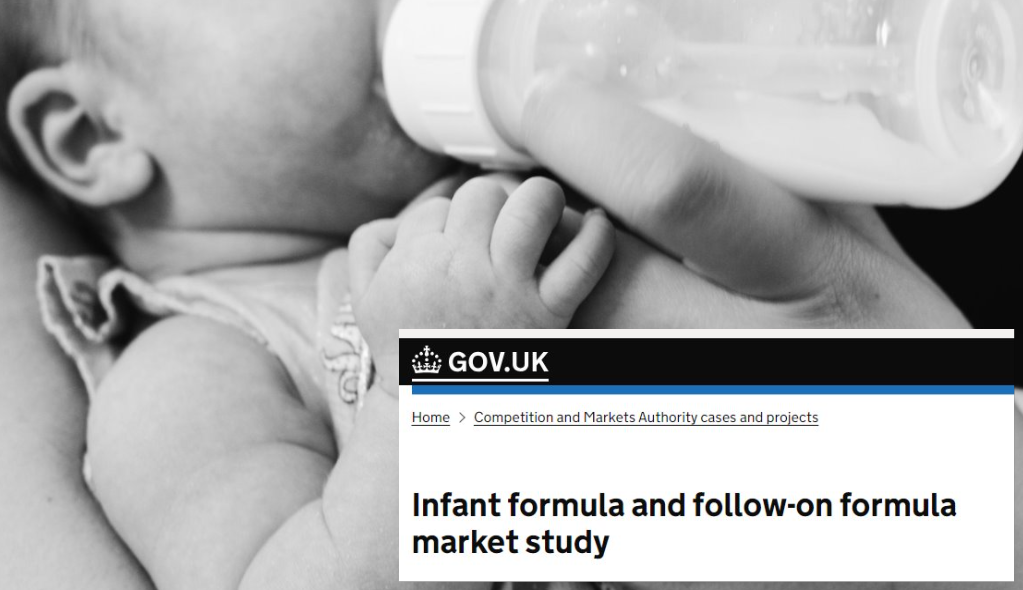Feed Statement: CMA infant formula and follow-on formula market study update
The Competitions and Markets Authority (CMA) has today - 16 August 2024 - published an interim decision in relation to its infant formula and follow-on formula market study. They have decided not to make a market investigation reference at this point.
In an email to Feed, and no doubt others who responded to their initial investigation, Nicola Brown, CMA Director, said:
The CMA has identified significant concerns that the combined effect of the current regulatory framework, the behaviour of manufacturers and suppliers and the needs and reactions of people buying formula, are resulting in poor market outcomes. The CMA considers these concerns will be best addressed by progressing with our market study and developing recommendations to governments to improve these market outcomes rather than moving to a more extensive market investigation. We expect to publish an interim report setting out our concerns along with provisional recommendations for action in October this year.
We welcome this update from the CMA and the recognition that some of the current regulations around promotion of infant formulas may in fact reduce competition around price, particularly with regard to the difficulty any new entrants face in raising awareness of their products. This does not help parents, and especially those already facing financial challenges.
Switching to infant formula or making a decision to supplement is, for some parents, a choice made at a vulnerable time, and the lack of information on the similarity in composition of all infant formulas, coupled with anxiety about whether they are choosing the best for their baby, can mean, as the CMA notes, that price becomes a proxy for quality. We can and must do better on how and when crucial information on infant formula is provided to parents. Present guidance forbids healthcare professionals from providing any information about infant formula proactively in the antenatal or postpartum period unless specifically requested by the mother. Yet by 6 weeks, most families are using formula to some degree. This information vacuum only serves the interests of existing, established manufacturers who are able to fill that void.
We look forward to seeing the recommendations of the CMA in October. However this issue needs to be tackled as part of a wider approach that recognises the reality of infant feeding choices today. We need to stop compartmentalising women into those who breastfeed and those who formula feed - most families will do both at some point in their infant feeding journeys. They need high quality advice and practical support as they navigate those journeys, and a regulatory framework that works to support their needs and actual experiences.

